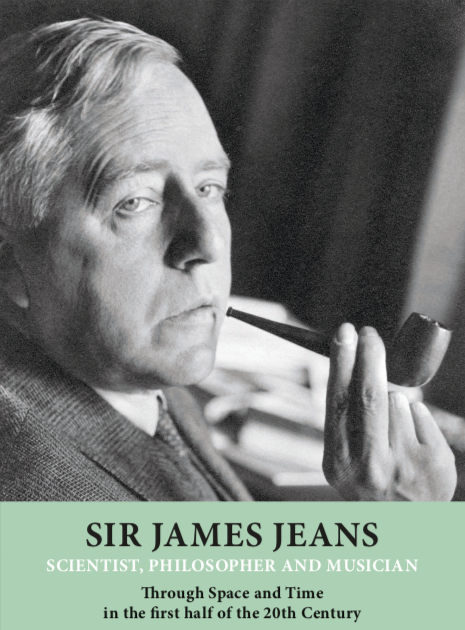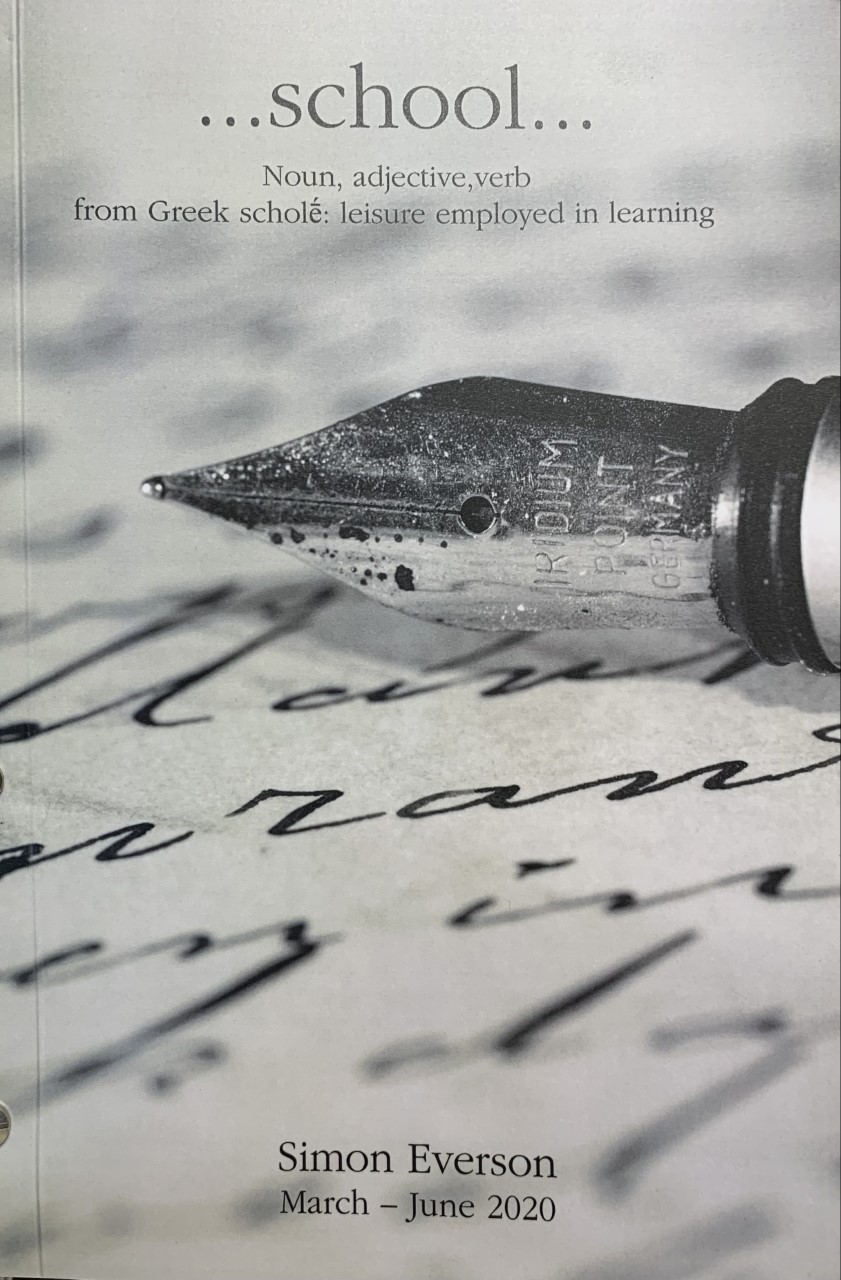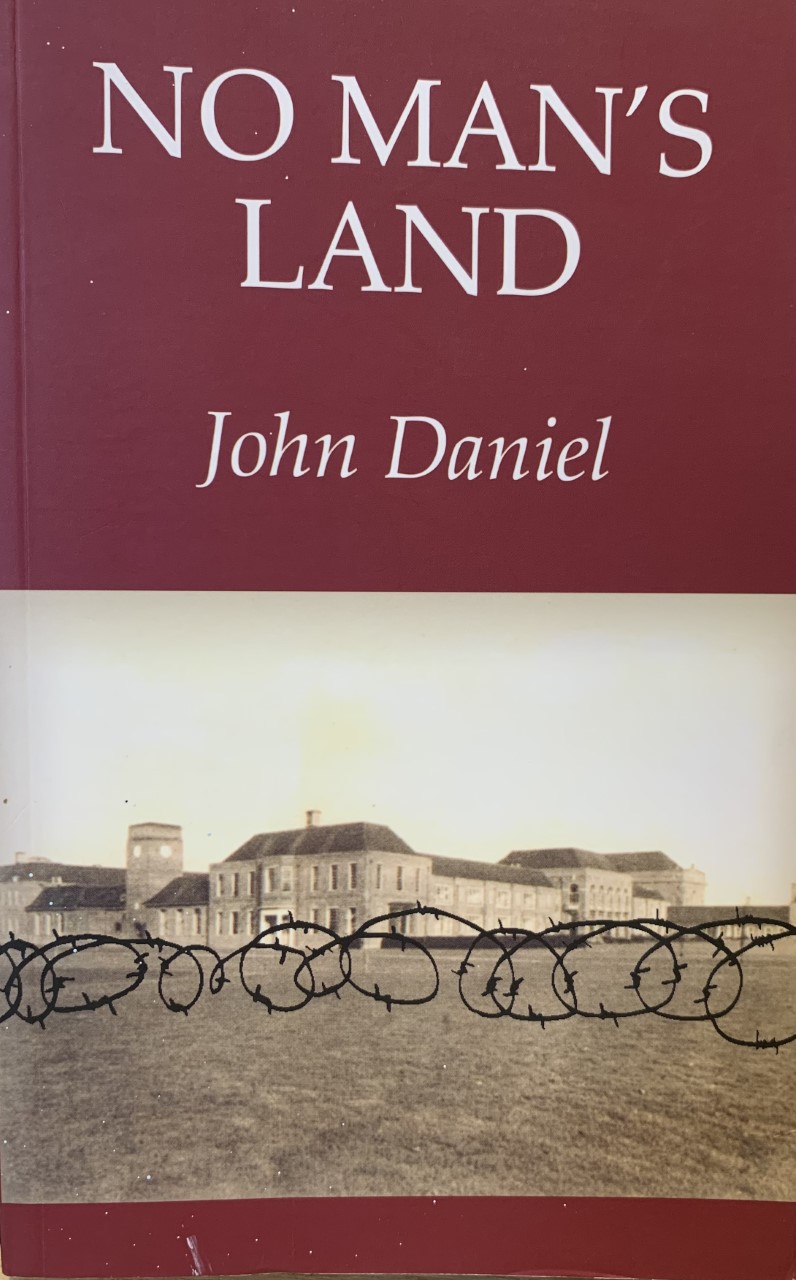Literary Accessions
Over the past year the Archive has received some outstanding donations from authors which are worth sharing.
"Sir James Jeans: Scientist, Philosopher and Musician. Through Space and Time in the first half of the 20th Century” by Alexander Kozenko and Christopher Jeans
In January, Christopher Jeans, son of the eminent OMT Sir James Jeans, presented to the Headmaster a copy of his biography of his father, Sir James Jeans who attended Merchant Taylors between 1890 and 1896.
 |
|
The book shines a light on Sir James’ days at Charterhouse Square, attending a school for the ‘middle class’ with a good reputation for teaching. The author presents a visceral account of the school, harking back to the brutal execution of the Carthusians who resisted Henry VIII’s Reformation and whose body parts were subsequently nailed to the door of the Charterhouse. Similarly, he describes his father’s journey to school through the ‘labyrinth of streets around the Tower and the Docks”. His father also remembered travelling on the train with a close friend, William Elderton (MTS, 1889 – 1894) – one of the few who saw through Sir James’ natural shyness.
Christopher Jeans praises the education that his father received at Merchant Taylors’ – he relates that the Headmaster, William Baker had founded the Modern side that Sir James moved over to from classics in 1893. Three Mathematics masters appear to have had a significant influence on Sir James – the Rev. S.T.H. Sanders, S.O. Roberts and C.W. Payne – whose qualities made a ‘good team’ in the words of Sir William Elderton. Teaching of the juniors was partly undertaken by the senior boys and by 1896 Sir James was Second Modern Monitor and First Monitor in Mathematics. According to a contemporary, Jeans adopted a pose “sitting cross legged, leaning his elbow on his knee and resting his chin in his hand.” Contemporaries also paid tribute to Jeans’ insistence on clear explanations and his broad range of interests, including playing the organ in the School chapel.
|
The book goes on to catalogue the career of one of the School’s outstanding academic alumni. He remains remembered to this day via generations of Entrance Scholars who have been awarded the James Jeans Scholarship for exceptional achievement in Mathematics and Science.
“Sir James Jeans: Scientist, Philosopher and Musician. Through Space and Time in the first half of the 20th Century” by Alexander Kozenko and Christopher Jeans (Cosmogonic Press, 10 Feb. 2021)
“…school…” by Simon Everson
Any OMT’s who have met our current Headmaster, Simon Everson, will know that he has a restless mind that is constantly looking for new projects and stimuli. Lockdown in 2020 came as both a frustration but subsequently an opportunity for him to pen a novel on the life of a Head Teacher in a school. Written between March and June 2020, Simon has drawn on his rich back catalogue of assemblies and experience in his previous schools to pen a guide to Headship that is both inspirational and amusing in equal measure. For those of us who work with him, it can be an uncomfortable read but in future years its place in the archive will be valued for the insight it gives to the sheer challenge of leading a school such as MTS.
Here's an extract:
|
The role of the teacher is made even more challenging by the political context in which teaching takes place. The Red Queen makes an apt analogy. Those of us who work in schools will recognise her methods. You have to run as fast as you can to stay in the same place; to get anywhere else you have to run twice as quickly. I think I have seen 17 Ministers for Education come and go over the course of my career, with an average lifespan of about 18 months. I am not sure of that figure.
Managing the various diktats and policies which have emerged from this unnumbered set of anonymous and variously ill-informed Secretaries of State for Education is not dissimilar to playing croquet using flamingos and hedgehogs.
Finally, as nobody seems to trust teachers to get on with the job they know and love, teachers have become accustomed to an oppressive compliance culture, enforced by a more or less hostile system of Ofsted inspection. The Red Queen’s cry of ‘Off with his head!’ has been heard by many hard-working and well-intentioned school leaders.
On one occasion an inspector came to see him after a day in the History department and began the conversation with: “The teaching is very didactic.” Anderson’s response was: “Good. What else did you like?”
(The obituary for Eric Anderson, former Head Master of Eton College, The Times, 2020)
|
|

|
Another extract, drawing on the inspiration of Richard Mulcaster:
Richard Mulcaster was a pioneer in the profession of teaching. As head of a London school in the mid-16th century, he promoted a holistic education, in which sport and academic learning were valued equally. The extract above sums up for me the talents and dispositions most necessary to form a good teacher. To teach well, one must draw upon the very best of oneself in order to evoke the enthusiasm and development of the child. It is an endlessly fascinating, hugely rewarding and deeply fulfilling endeavour. Only those of us in the profession know the joys it holds and the despair it can engender; part of the purpose of this book is to celebrate and share these private moments. Richard Mulcaster himself had the joy of teaching both Edmund Spencer, who wrote The Faerie Queen, and Launcelot Andrewes, who oversaw the creation of the King James’ Bible. That is what a good teacher can achieve.
I have worked in every part of the educational world: I have taught in a community comprehensive, grammar schools, a middle school in Japan, and independent schools. I have been a head for the last fourteen years. Most importantly, I have never fallen out of love with the wonderful profession of teaching. I want to be honest and direct with you, sharing what it really feels like to be a teacher and a school leader.
Simon’s book is currently unpublished, but a copy resides in the School Archive – it will be read, I am sure, by future leaders of this great School – and may yet be more widely available.
“No Man’s Land” by John Daniel (Merchant Taylors’, 1946 to 1953)
In response to my request for memories of the Coronation in 1953, John Daniel very kindly sent me a copy of the second volume of his autobiography, dedicated to “my contemporaries who survived the eleven-plus examination, National Service and the Cold War.” Given that my father would be one such contemporary I was very excited to open the eye-catching cover and it did not disappoint.
 |
|
As John pointed out in his letter accompanying the book, ten students from Middlesex and five from Hertfordshire were enrolled as part of a scheme to open up access to the private sector (MTS never recognised its classification by the Government as an independent grammar) for talented boys which was part of the reforms introduced under the 1944 Education Act that formed the Direct Grant system.
For John, the experiment was not a success and he catalogued his academic struggles, punishments and being made to feel by relatives and neighbours that he was lucky to have been afforded such privileges:
“I managed to come twenty-third out of twenty-five in the final class order and was destined for the Lower Fourth, an ignominious position for one selected out of ten from Middlesex state primary schools…I couldn’t roll a French “r”, unscramble Latin syntax or sit with my knees flat on the gym. I was clearly a hopeless case, unable to take advantage of all the wonderful chances I had been offered”
Although much of the book’s focus on Merchant Taylors’ reflects the emotional challenge of fitting in, there is a touching tribute to the late John Steane who is given his own chapter. JBS had recently joined the School – amazingly his last year was also my first, 1987/8 and I recognised the description of “a small rotund man with a chuckling laugh."
“I was indebted to him for the way he shared intellectual arguments and never imposed them…He talked to me as an equal and helped me to strive to become one”
|
“No Man’s Land” by John Daniel (Pennycomequick Press, 2017)